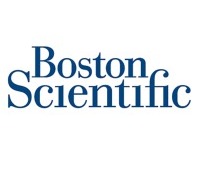We are grateful for the funding and support that enables our center to work towards broadening participation in science.
Current Support and Projects
The purpose of this program is to draw on a long-standing partnerships between local schools, teachers and the CSE to create innovative opportunities for high school students to explore life-relevant health-related careers while building critical competencies. This project leverages considerable work and infrastructure built from the Great Diseases, Teaching the Great Diseases, and BioScann projects and will: 1) build career awareness in science classrooms; 2) provide online pre-college, dual-enrollment courses opportunities in biomedical topics that emphasize college-readiness skill-building; 3) establish a residential near-peer mentoring summer program at Tufts for Boston Public High School students. The overarching goal is to increase student interest in health-science related careers through opportunities that build critical self-perceptions and career awareness.
Bingham Foundation: Bingham Fellowships For The Teaching the Great Diseases Program (TGD)
The goal of the TGD program is to use an online mini-course approach to equip teachers with the knowledge, skills and classrooms materials they need to teach health and biomedical sciences. By equipping more teachers to effectively teach our curriculum in their classrooms, the TGD program will have two major impacts: Teachers will gain needed continuing education / graduate credits and what they learn can be directly transferred into their classrooms to increase high school student competencies in STEM and health literacy skills. With support from the Bingham Foundation, we created four postdoctoral Bingham Fellows that contribute to all aspect of TGD and are being trained as scientist-educators that are bilingual liaisons between teachers and scientists with expertise in biomedical sciences and education.
Completed Support and Projects
NIH SEPA Support
Grant # R25 OD010953-04: A Collaborative Approach To Real-world Science In The Classroom
The goal of the Great Diseases project is to engage high school students with the science behind their real-world experiences. To do this, Tufts scientists and Boston Public School (BPS) teachers collaborated to bring together the content knowledge and pedagogical skill needed to design a curriculum based on ‘The Great Diseases’. Each of the four modules consists of a 6-week course addressing topics related to a specific disease (Infectious Diseases, Neurological disorders Metabolic Diseases and Cancer).
Grant # R25 OD020207: Great Diseases: Biomedical Science In The High School Classroom
Through this award we focused our attention on training science teachers across the country, the vast majority of whom have had no prior exposure to biomedical or health related of material. To accomplish this, we refined our Modeling For Fidelity approach to reach teachers at scale and without geographic limits to ensure that they have the necessary knowledge of the content and curricular approaches. We did this by combining educative materials such as lesson plans with contextualized content and videos, professional development (in-person, online, hybrid, synchronous, and asynchronous) and remote just-in-time teacher support during implementation. The ultimate goal was to use this intensive teacher support program to enable teachers to educate a health literate citizenry able to make lifestyle choices.
NIAID Support
The ‘Modeling for Fidelity: Infectious disease in the classroom’ project developed and teseted a distance learning and support platform to bring our curriculum to teachers and classrooms across the nation. The ultimate goal was to use this intensive teacher support program to enable teachers to educate a health literate citizenry able to make lifestyle choices that limit the impact of infection.
NSF Support
The goal of this project is to design a technology-rich high school curriculum that integrates bioscience career awareness and competency building to foster student interest and persistence in bioscience careers. To do this, Tufts scientists and Boston area teachers co-designed an interactive and collaborative web-based simulation that engages students in career-focused case-based learning scenarios.
Grant # 1506883: Rapid: Effectively Communicating Ebola Information To Vulnerable Populations
The goal of this project is to design a high school and middle school curriculum and teacher supports and training materials to education students and their parents on about the Ebola epidemic of 2015.
Cubist Pharmaceuticals: Professional Development In The Teaching Of Infectious Disease
The goal of this project was to train and support teachers to use the Great Diseases Infectious Diseases Module and to provide the classrooms with the needed lab materials.
Massachusetts Life Sciences Association: Co-Mentoring For Career Awareness
The goal of this project was to design and test a prototype of the bioscience career awareness curriculum model called BioScann. Pilot data from this exploratory project paved the way for the NSF-ITEST project above.





